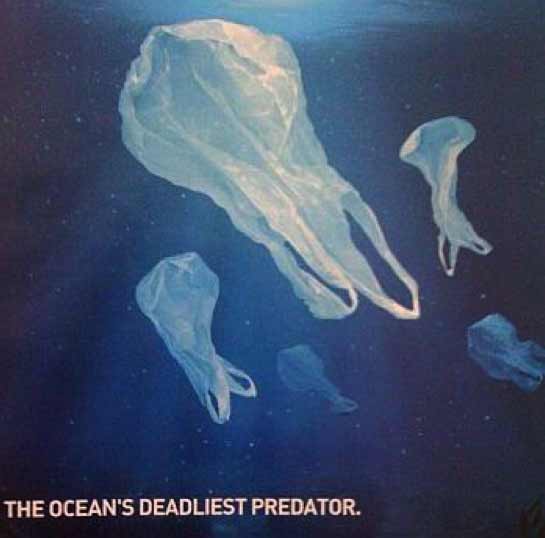
Plastic bag waste may be The Ocean’s Deadliest Predator (Image: Project AWARE Foundation)
By day, I build and run waste processing infrastructure in Perth, Australia. I’m the CEO of the Western Metropolitan Regional Council (WMRC). I spend a lot of my time doing engineering, politics, lobbying – all of the things you’d expect with anything that is concerned with Big Serious Stuff. And in doing this, it is easy to overlook that waste is a deeply personal affair.
Waste is, at its core, a set of personal habits that aggregate to create a social problem. What we discard is, as Gay Hawkins put it in The Ethics of Waste, how we constitute ourselves.
Plastic Waste — A Gift to the Future?
One of the personal habits that has become a global challenge is plastic waste. Plastic is very convenient and versatile. As a result, it is ubiquitous. It also lasts a very long time in the environment. Indeed, in The World Without Us, Alan Weisman argues that plastic may be one of our longest lived gifts to the future. That gift will continue to kill sea life for hundreds of years, with animals confusing the plastic for food, entangling themselves and drowning or steadily filling their stomach with indigestible plastic until they starve to death.
So what to do about all of this plastic?
We could lobby for a ban on (at least non-recyclable) plastic. We could lobby for all plastic to be biodegradable, so that even if it does wash into the ocean, it becomes a food source rather than a killer. We might even try to capture all plastics from the ocean now, and recycle it into new plastic or fuel, as Method is doing with its Ocean Plastic bottles.
All of these measures would work, but they are ultimately dis-empowering for the citizen.
We need to deal with plastic personally. Sure, take all of the broad-brush measures mentioned above, but also create a space in your personal life to phase out plastic. To prevent plastic waste from happening in the first place.
Introducing Plastic-Free July
Plastic-Free July is led by Western Earth Carers at the WMRC, in conjunction with the Two Hands Project. Its impact is great.
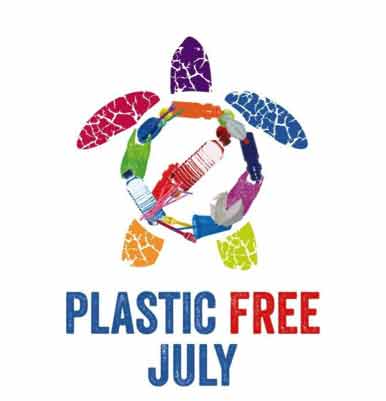
Plastic Free July turtle made from plastic waste (Image: Plastic Free July Facebook)
Founded in Perth, Plastic-Free July is deeply informed our city’s good fortune of having some of the most beautiful beaches on earth. These are the beaches I get to enjoy on a morning walk with gentle wavelets lapping around my feet, or swim in after work on a hot summer’s day. Unfortunately, they are also the beaches where a plastic bags wash up alongside me. Or where my dog finds a dead bird starved on plastic bags. Or where a drink bottle bobs along over the reef. Plastic pollution is both confronting and immediate.
Plastic Free July is rapidly becoming a global movement. You can find out more at Earthcarers.org.au and Plastic-Free July’s Facebook page.
Take the Plastic-Free Challenge
Simply take the pledges to modify their your behaviour to introduce no new plastic into your life during the month of July — even for just a shopping trip, a day, a week, or ideally, the entire month. The point is to make one aware of how much is out there, how one might reduce it, and how it is so difficult to reduce. It is to introduce mindfulness in relation to plastic.
In taking the challenge, you will learn a lot about yourself.
I am terrible at going plastic-free. But even I learned the benefits of buying food in bulk with reusable containers, and even freeing items from their plastic confines in the store (and I’ve even dreamed of handing the plastic back to the clerk but I haven’t mustered up the nerve quite yet).
And every time I forgot to take my reusable shopping bags, I either tottered out of the shop with groceries piled high in my arms, or added another bunch of plastic bags to my dilemma list.
Small steps that add up to a movement
And so the lessons are learned. Gradually and gently, with a supportive virtual community around you, everybody helping out, everybody giving little tips for learning. And all of these little behaviors lead to a broader change. To paraphrase Gandhi, you are the change you want to see in the world!
So, ultimately, the goal of Plastic-Free July is not to pretend that your personal eschewing of plastic will diminish the Great Pacific Garbage Patch. On its own, it won’t. Instead, the goal is to empower you to be mindful about preventing plastic waste, to make your changes, to give your peers the opportunity to gently question their own behavior. And it is precisely from these small steps that a movement grows. A movement of “us” that adds weight to the big changes “they” should make.
And if we can’t exercise our power as a citizen to stop the scourge of plastic, what power do we have?

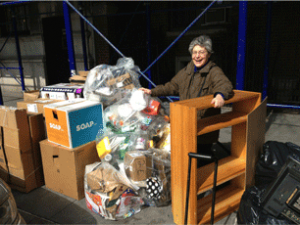
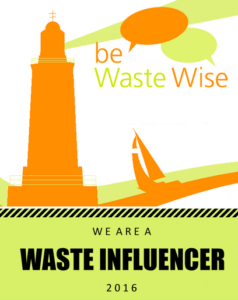
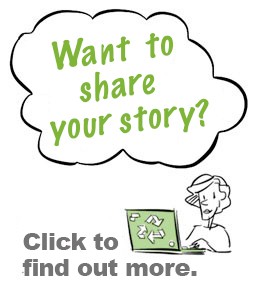
hmmm…. not sure why my last reply did not post… but at least a little bit of good news with the latest article on how some of the big players are ditching plastic bags for good:
IKEA, Whole Foods ditch plastic bags for good http://grn.bz/WS6fBT
The downside is that there appears to be yet another gyre that was recently discovered – the South Pacific Garbage Patch. “the online journal Marine Pollution Bulletin reported the latest discovery of ocean plastic, found off the coast of Chile by a 5 Gyres Institute expedition”
Hi Barbara,
Apologies for the late response. There are apparently more than one, even two gyres. I was reading some research that makes reference to SIX “major” gyres. The oceanographic modelling suggests they all unite in the North Pacific over several hundreds of years. Nice to know huh? Reference to the paper is here: http://erik.vansebille.com/science/vansebille2012c.html
But to good news, I had heard that and it is great to see. It only requires a general trend. Actually, I’ve seen some be even more cunning, and charge 10 cents per bag. So if REALLY need the bag, you can pay for it. They don’t sell a lot of bags…
Adam
Wow-plastic free July sounds like a great idea! Going completely plastic-free sounds nearly impossible, but doable. I already bring reusable shopping bags to the grocery store, but so many items come in plastic containers (juice, dried fruit, nuts, pasta…etc) I feel like plastic is difficult to avoid. My favorite way to avoid plastic is by buying foods that come in glass jars (green mountain salsa and glass juices/wines) are easily repurposed as vases or storage containers. I carry around an empty mason jar with me for take out or lunch on the go situations, but understand its not ideal for moms with small children that could break the glass. Instead, reuse Tupperware that restaurants give you in doggy bags-that way you don’t have to buy storage containers, and they are often easily refillable in raw foods sections in places like whole foods.
July is a while off, so I challenge myself to watch my plastic waste and reduce as much as possible leading up to the month so I can (hopefully) be plastic free for all of July.
Who will join me?
That’s a great approach Lizzie, and your tips are all brilliant. This is exactly what it’s about. Sharing your ideas, your learnings, how you responded to problems.
I must hasten to clarify, I really struggle to go plastic free. I’d like to blame everybody else, circumstances, whatever, but really it’s up to me. The point is less to be absolutely plastic free, but instead to do as you are doing, and be mindful of the plastic that you let into your life.
You sound like a perfect person to take on the challenge. Maybe it can be a movement that spreads to the US!
Adam
I LOVE this post. I live in the Rockaways in NY and following Hurricane Sandy, I took a walk along the beach to see all the damage done. One thing that I could not avoid while walking along the shore was the amount of garbage that washed up – plastic bags, plastic bottles, objects made of foam, and even concrete cinder blocks, just to name a few. Although there was a wide variety of items washed ashore, it was obvious that items made of plastic were the most abundant. The ocean is NOT a garbage dump and the fact that it is massive does not justify any amount of waste that ends up there. It accumulates over time – as in the Great Pacific Garbage Patch – and takes lifetimes to decompose.
Take the plastic free challenge!
Thanks Michelle,
You’re right – walking along the beach (or riverbank), you get a really stark sense of where “away” is when you “throw it away”. And it’s bad enough that the plastic is there. It’s a million times worse that the plastic kills marine wildlife, and will continue to kill for centuries to come. That is dreadful.
I say, give plastic free a go. At the very least, you can recognise something that is othewise pretty much invisible.
Adam
Plastic Free July. I’m in! Reducing the plastic in my life is something I really struggle with. I agree with you though that it’s important to be mindful and to always question our current behavior if we hope to make any real changes to our lifestyle in this regard. It’s also important to share tips with others on creative ways to reduce plastic waste.
So here’s a project I was involved with in India to not only reduce plastic waste but to empower women as well. It is a recycled plastic waste weaving project. Yes, weaving. A women’s group first collects the plastic waste, which is then cleaned, sorted, cut and woven (by newly trained women weavers!) into beautiful shopping bags, file folders, table mats, checkbooks, and more. It’s a constructive way of re-purposing waste and employing women. For more information, please visit http://www.khamir.org/blog (and scroll down). This is a great gift idea! My family and friends especially love the large shopping bags.
Hi Hetal – I love these bags. I saw another group in India doing something similar, or maybe it is the same group (Green Village Zero Rubbish Project). It’s a great way of overcoming plastic pollution and providing employment for women in the villages. Do you know if they are being distributed outside America?
Hi Hetal – I love these bags. I saw another group in India doing something similar, or maybe it is the same group (Green Village Zero Rubbish Project).
It’s a great way of overcoming plastic pollution and providing employment for women in the villages. Do you know if they are being distributed outside India?
I really liked this post! Thanks for sharing Adam. It’s tough for me to stay positive about the bleak and excessive use of plastic in our society. Especially right here in Manhattan, where cashiers look stunned at my request for “no plastic bag.” Plastic Free July is certainly an effort I look forward to joining and sharing with my friends.
Last summer I met an executive from the Swedish company Electrolux, and learned about their “Vac from the Sea” initiative. Really cool:
Article: http://www.global-adventures.us/2010/06/28/electrolux-vacuums/
Video: http://group.electrolux.com/en/electrolux-unveils-five-vacs-from-the-sea-8687/
The Vac from the Sea is really cool – thanks for sharing that. I hadn’t heard of it. It is a very clever way of promoting the message.
But you are right that it’s hard to keep upbeat when the place is awash in plastic. Everywhere you turn, more plastic. Little steps are all we can do – the culmination of many small actions will create one big action.
I love the idea of a plastic free month.
Having said that, plastics are only one component of the larger issue of disposable and unrecyclable consumption. Which disposable product is worse for the greater environment: plastic wrap, waxed paper, or aluminum foil? That’s a difficult question to answer holistically, but most people would agree that a reusable container is likely better for people and the environment. If a plastic free month helps shift people towards more sustainable consumptive practices, in any way, it’ll be a clear success. Sign me up!
Hi Sam,
Which is worse? Now that is a game you can play all day long, and it depends on where come from as to which answer is “right”. And in fact, there isn’t really a “right” answer, the most correct answer is to be asking the question in the first place. And, from that question, challenging why it is that we need to be so disposable in the first place.
Now I’ll be the first to admit that it’s one thing to know you shouldn’t rely so much on disposables, and another entirely to stop using disposable products, but again, the thought process matters.
Hopefully Plastic Free July works for you. It is being launched here in Perth next Tuesday, which is very exciting. I’m told to look forward to a whole heap of exciting stuff. It would be great to see the event spread.
This is so true. I’ve volunteered with stream clean up in the past, and it helps clean up a specific area for the time being, but ultimately it needs to be the publics behavior that changes to make long term cleanup a reality.
Plastic Free July is a great way to make people conscious of their waste! I was wondering what kind of tools are you using to increase awareness of Plastic Free July. A good idea might be to ask local businesses to cut down on their waste, or have them ask their customers if they would like to go bagless on small purchases.
Hi Chelsea,
I’m not too good at answering, am I?
Awareness building for Plastic Free July is being largely driven through a fabulous network of friends in social media. It has been incredible how hard everybody works to get the message out in so many different way, with each person having their own way of approaching it. And yes, some have been talking with shop owners to see how to reduce plastic at retail. It leads to very entertaining experiences in the deli, where meat can be placed in a reusable container, but disposable plastic is used to weigh, disposable gloves to handle and so on.
Keep your eye out for the outcome of the launch in Perth on Tuesday. There might even be new resources announced to help people in their journey. At core, though, this journey is one done together. I certainly don’t claim to have the answers – and in fact, the question itself wasn’t even asked by me.
Again, the benefits of having such a brilliant and engaged circle of people involved!
Hi Adam,
Thanks for such a comprehensive and straight-forward article about the woes of plastic. As someone who lives and studies in a urban center, but loves to escape to the less touched places of the earth, I am becoming more and more alarmed at the amount of plastic waste I see. I’m not shocked to see plastic bag or bottles blowing around my campus or the city, but when I recently went to Puerto Rico and hiked to a very remote beach spot, I was shocked to see the dirty plastic waste mixed in with the dried sea-grass where the shore met the mangroves. My footprints were the only ones on the sand and it was prime beach time on a gorgeous Friday afternoon. There were no other people, yet there was plastic waste. I collected as much as I could fit into my backpack to either recycle or sadly throw away to ultimately find a landfill. Our plastic waste is everywhere and as someone who already tries to use as little plastic as possible, I say, why wait until July? I’m going to try and go plastic free now.
I had previously done a similar thing with meat and a couple of years later, I’m meat free. If I hadn’t attempted to have gone meat-free I would have never been able to make the full commitment. We have to start somewhere and practicing/implementing a plastic free lifestyle can start today. Thank you for the information and inspiration!
Hi Dana,
You are certainly more devoted than I am (regrettably). But I agree, it is always a shock to see plastic in an environment that you thought was pristine. I find it shocking enough to see it on the beach where a lot of people hang out. To see it in a remote beach must be quite confronting.
I wish you all the best in your plastic free journey., and hope that you gather some fellow travellers. To be honest, if you don’t eat meat then you’ve probably removed one of the big sources of plastic. It seems that everything that comes close to meat must be first made of plastic, and then thrown away after touching it. Except for the knives. What is it with that?
Hi Adam,
Thanks for such a comprehensive and straightforward article about the woes of plastic. As someone who lives and studies in a urban center, but loves to escape to the less touched places of the earth, I am becoming more and more alarmed at the amount of plastic waste I see. I’m not shocked to see plastic bag or bottles blowing around my campus or the city, but when I recently went to Puerto Rico and hiked to a very remote beach spot, I was shocked to see the dirty plastic waste mixed in with the dried sea-grass where the shore met the mangroves. My footprints were the only ones on the sand and it was prime beach time on a gorgeous Friday afternoon. There were no other people, yet there was plastic waste. I collected as much as I could fit into my backpack to either recycle or sadly throw away to ultimately find a landfill. Our plastic waste is everywhere and as someone who already tries to use as little plastic as possible, I say, why wait until July? I’m going to try and go plastic free now.
I had previously done a similar thing with meat and a couple of years later, I’m meat free. If I hadn’t attempted to have gone meat-free I would have never been able to make the full commitment. We have to start somewhere and practicing/implementing a plastic free lifestyle can start today. Thank you for the information and inspiration!
Dear Adam,
A plastic-free July sounds like a great way to raise awareness of the danger that single-use plastic poses to the environment. People say that it only takes about 3 weeks to form a new habit and if people can pledge their commitment, or for the full month, it could greatly improve our plastic problem. With a growing desire to be more “green” a lot of consumers have already made bringing your own bag to stores more mainstream, thereby helping to make it trendy. I think the goal of plastic-free July to motivate people to reevaluate the plastic in their lives will lead to reductions in packaging and disposable goods in the future. On the topic of raising awareness of the prevalence of plastic, people should be mindful of the plastic in our clothing.
Although clothing is not generally single-use, it also contributes to plastic pollution. A study published in 2011 by Dr. Mark Browne of the Centre for Research on Ecological Impacts of Coastal Cities at the University of Sydney, and a group of researchers, reveals that clothing made from synthetic fibers is a significant source of microplastics, which are smaller than 1mm. Clothing that produces microplastics are made of any number of materials, from polyester to acrylic to fleece. When washed, the microplastics end up going down the drain with the wastewater. From there they can be removed during the sewage treatment process, but Browne’s study shows that some particles still find their way into our natural waterways and oceans.
It may be a while before we see changes that can reduce the impact of the convenient and versatile synthetic clothing. However, I am excited to do what I can to lessen the impacts of plastic, even if it is just the single-use plastics, for now. With July just around the corner, I plan to take on the challenge!
Hi Madeline,
I wasn’t aware of the microplastics from synthetic clothing. I guess it goes to reinforce that we don’t know what we don’t know, and that it’s pretty arrogant to assume that it will be ok because we haven’t found any problems. As Nicholas Nassim Taleb is fond of saying “Absence of proof is not proof of absence”. That same obviously applies to environmental impacts in general.
I’m glad to hear you are taking on the challenge. I need to get myself organised, and fast. The movement as a whole is gaining a lot of traction, which is really good. I think a lot of the appeal is because it’s simple, it’s self-driven and it is not judgemental. You do what you can, and most of the benefit is in learning how both how ubiquitous plastic is, and that you can make choices to reduce it. Particularly single-use plastic.
Adam
Pingback: The Oceans Deadliest Predator | Tiger Shark: Conserving Marine Life
Pingback: “OCEAN’S DEADLIEST PREDATOR” – Martha harris
I was very disappointed to discover that the NYS senate and assembly voted against adding a fee for plastic bags in NYC this past summer. Still doesn’t stop us from using our own!
Follow BagItNYC for the latest news on the issue and ways you can get involved: https://www.facebook.com/BagItNYC/